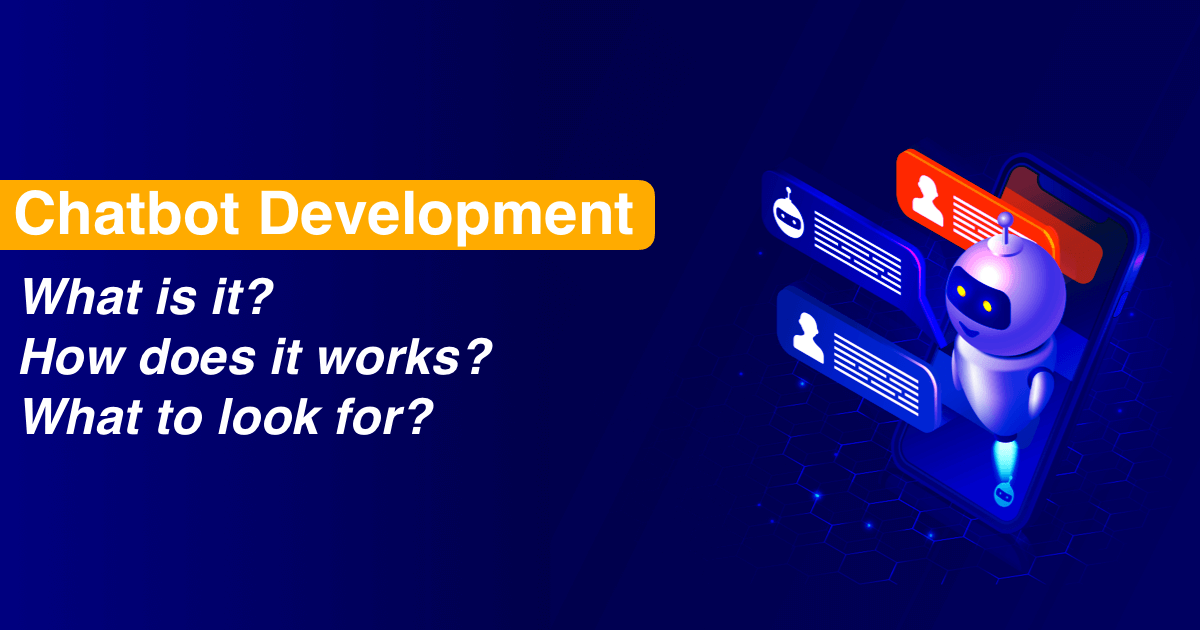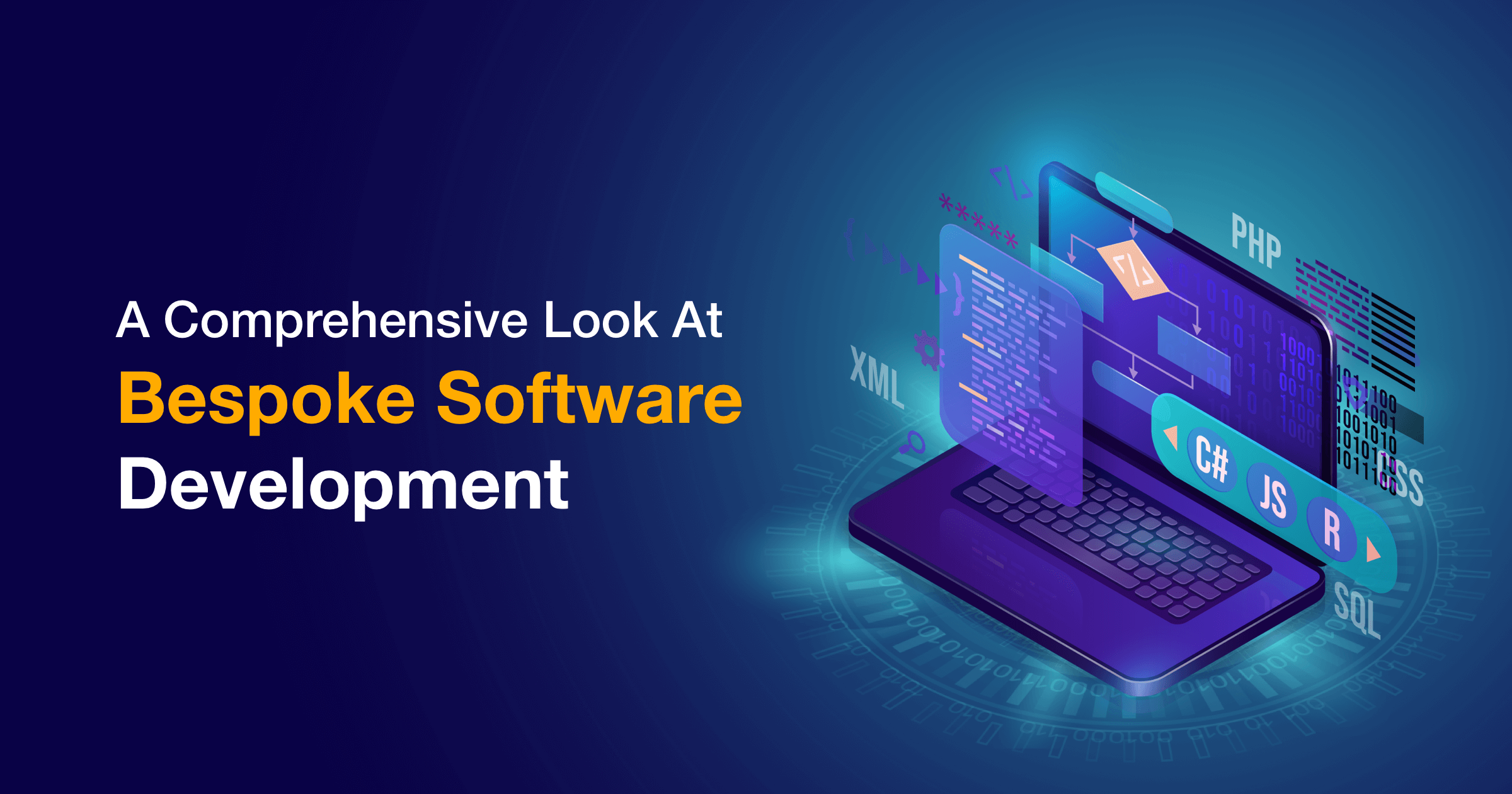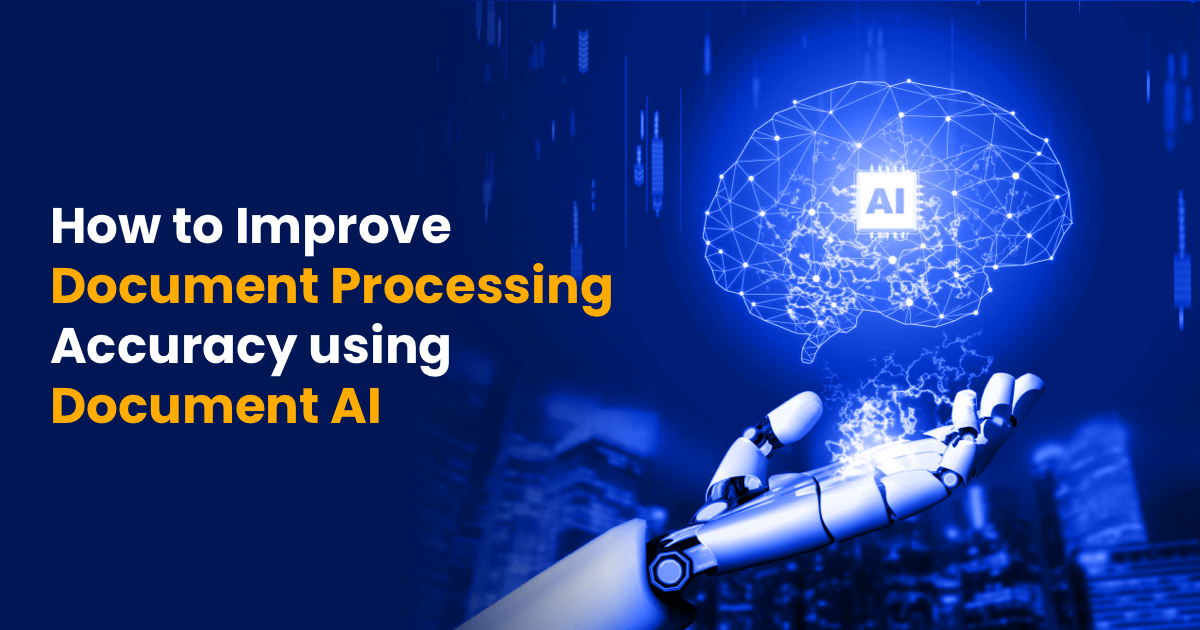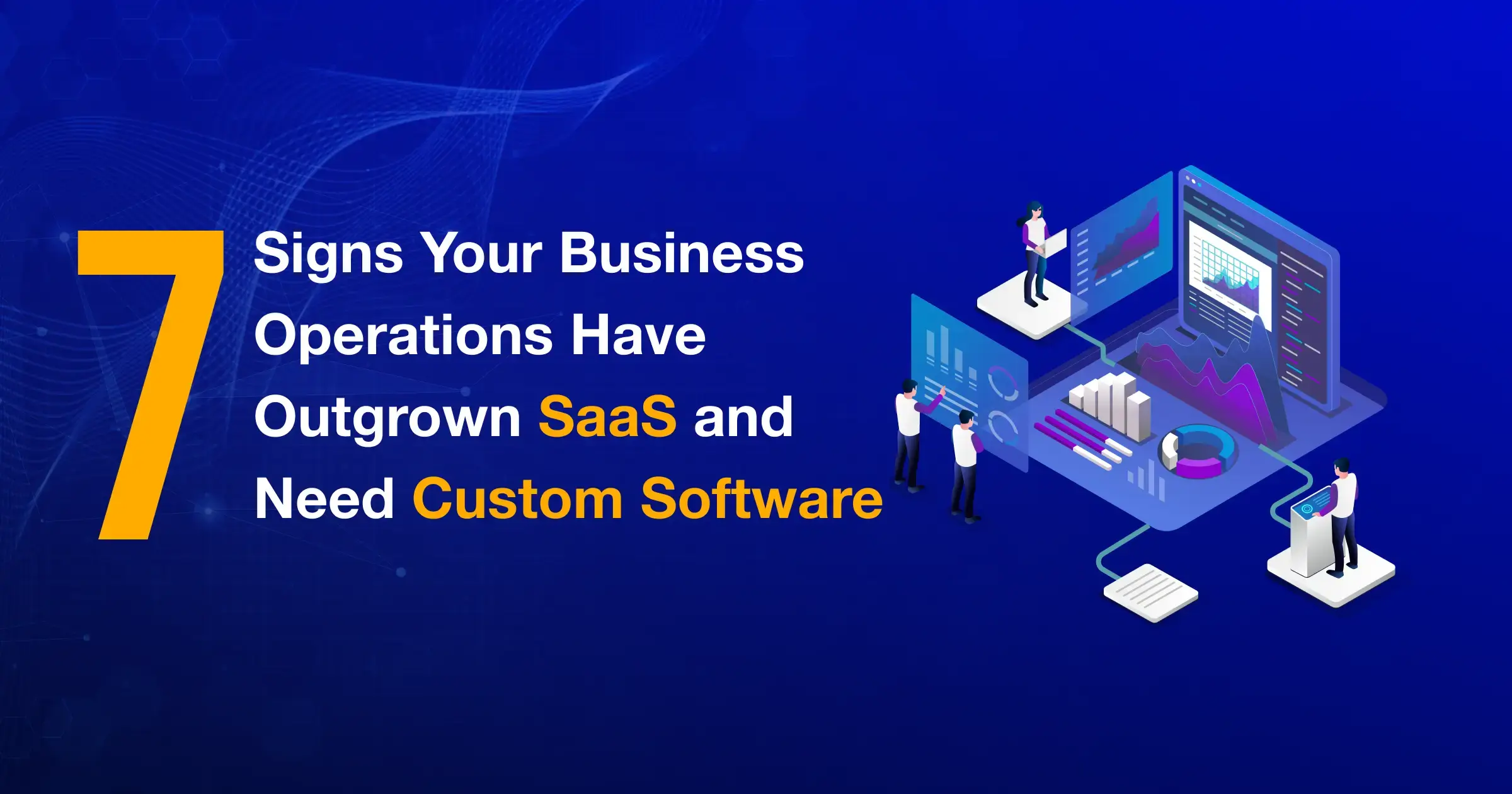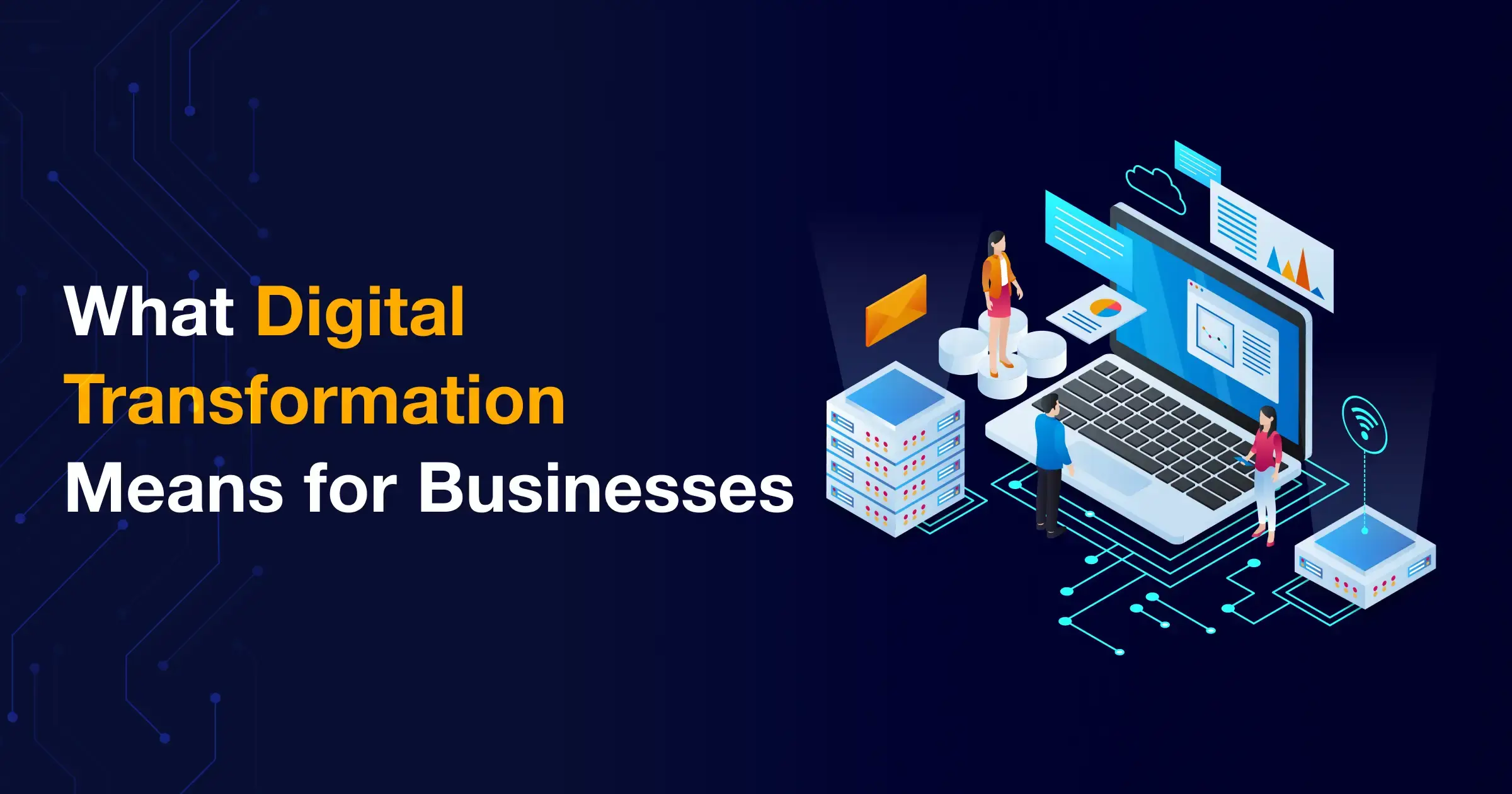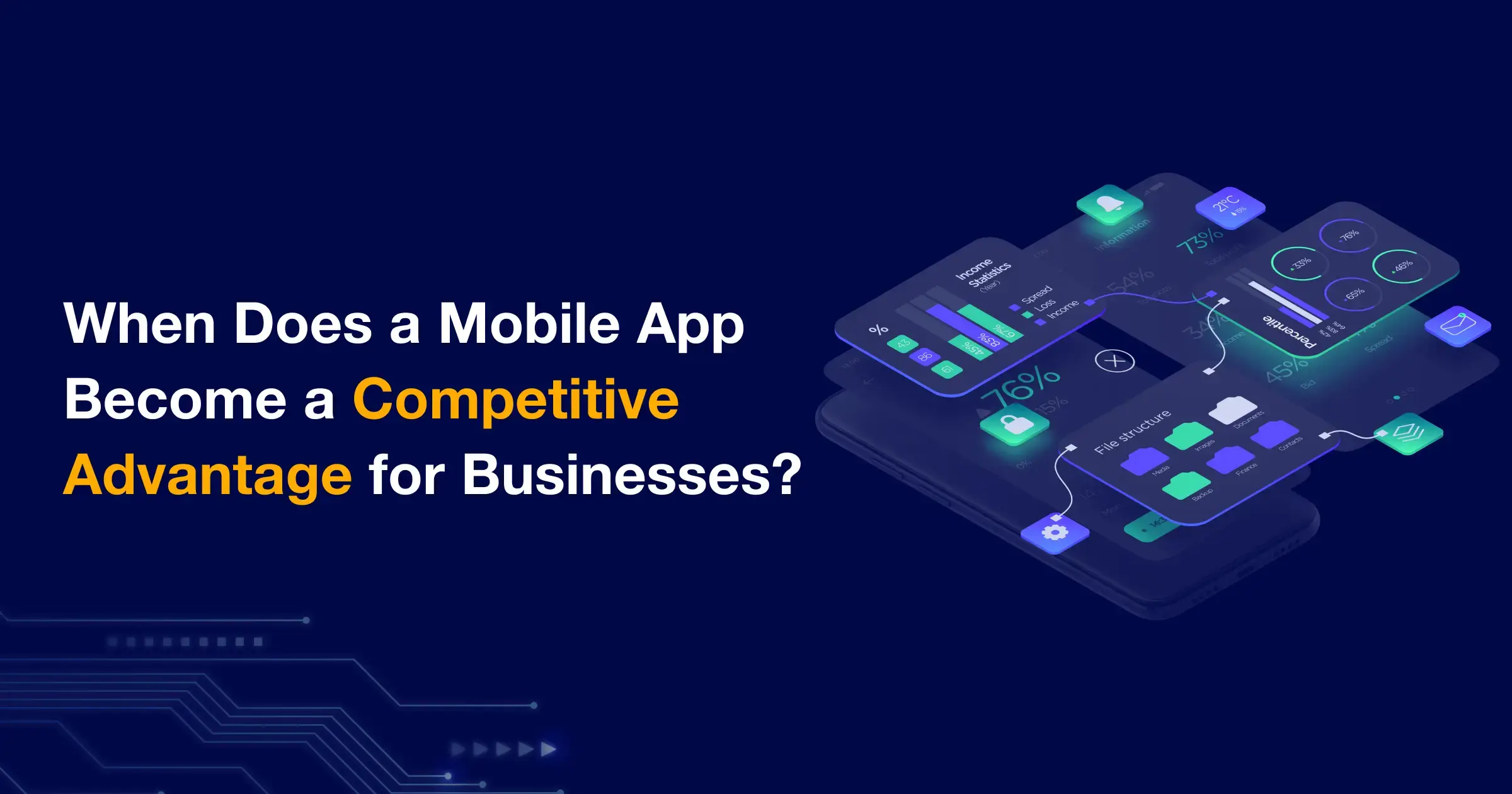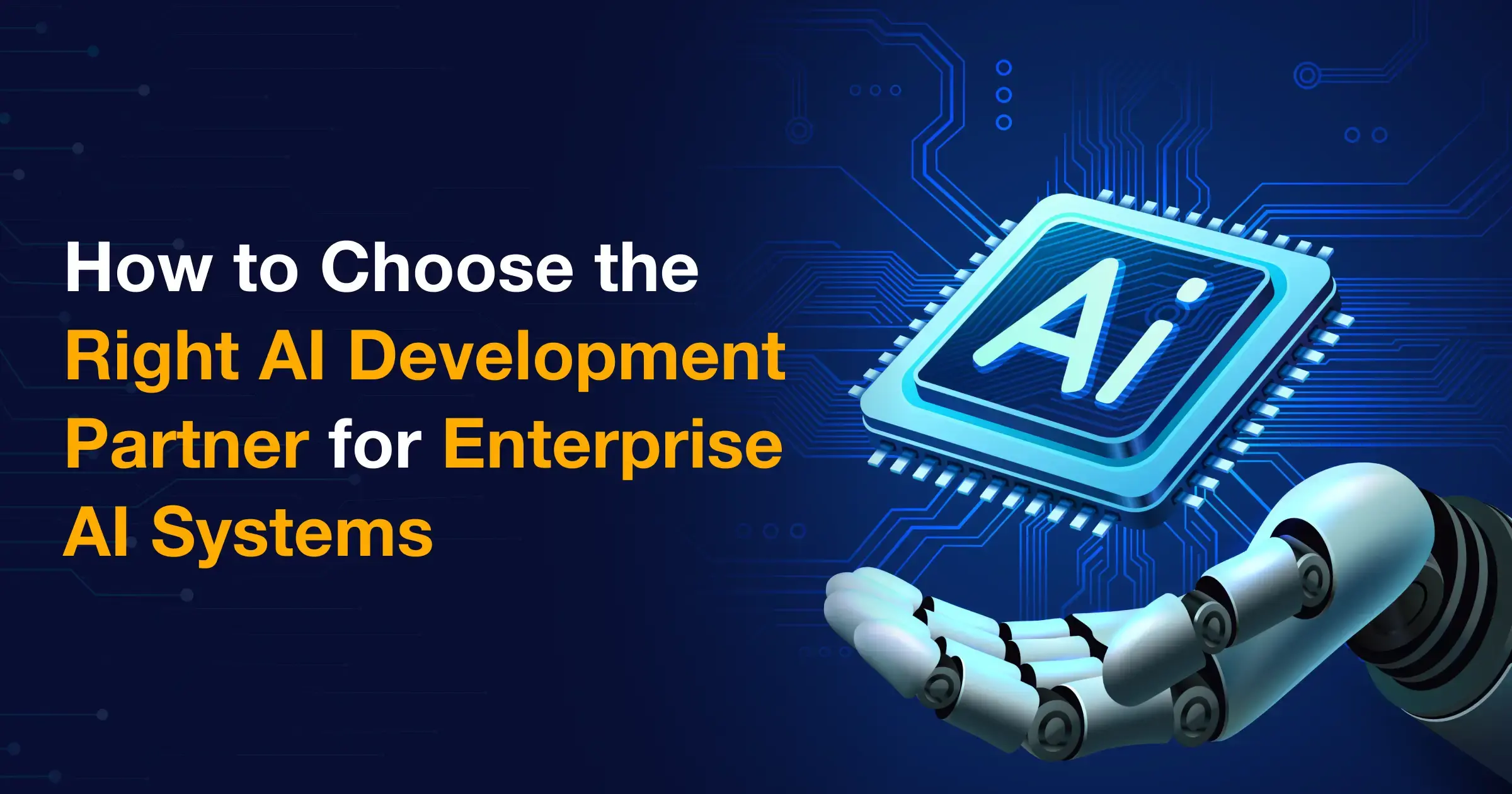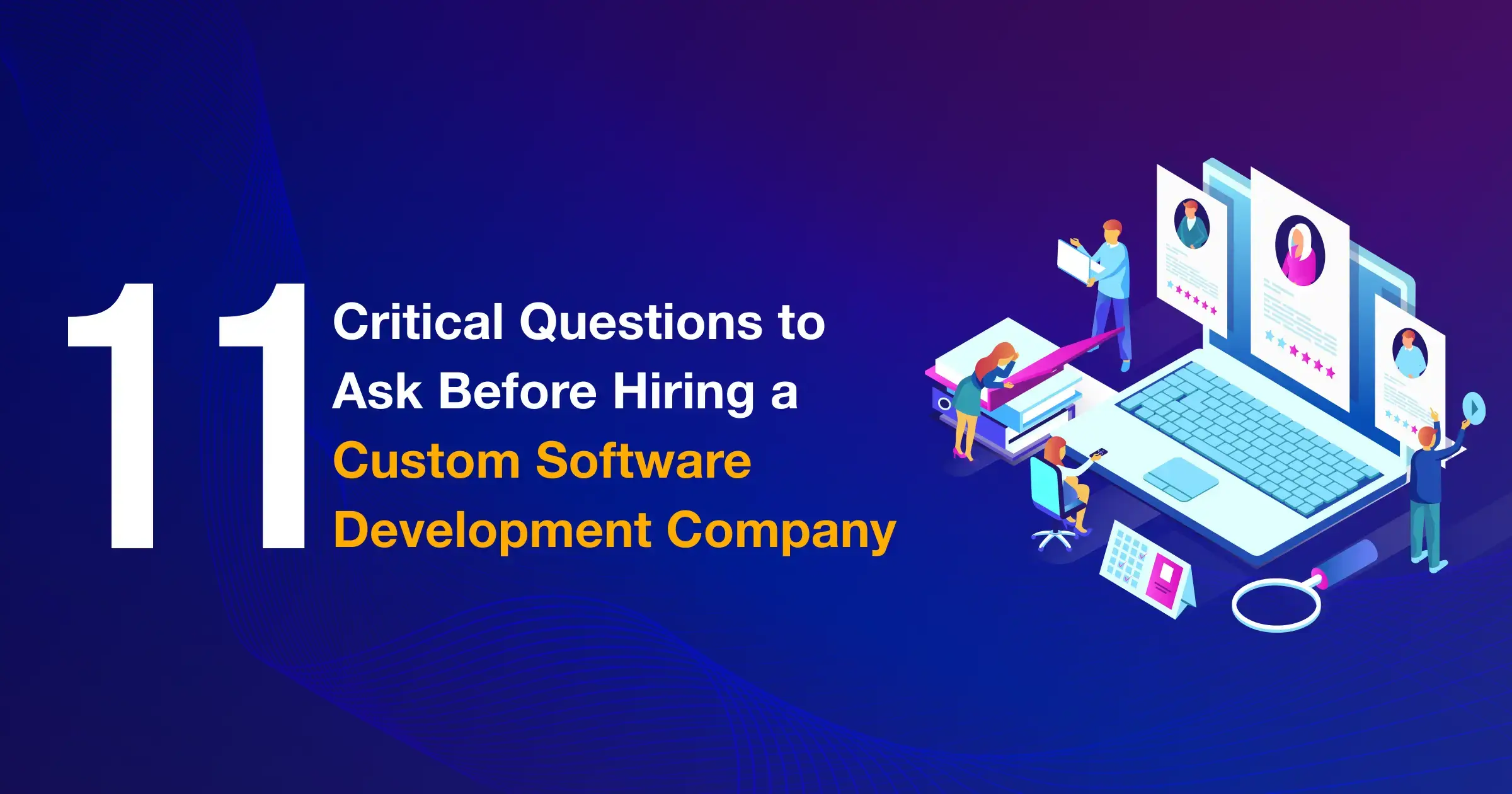
Introduction
Chatbots revolutionize the way customer service traditionally functions worldwide. They offer automated support and quick answers which facilitate businesses to adopt chatbots to engage well with their user base.
Chatbots use artificial intelligence to answer queries as they simplify customer interactions and support tasks. Developers create chatbots with custom software solutions where the field of chatbot development attracts businesses which seek significant digital growth. Chatbot technology fundamentally enhances user engagement and user satisfaction.
Chatbot development is key to digital transformation which drives efficiency in online customer support. Many industries use chatbots for better conversion rates as they communicate with users in a meaningful way which improves customer satisfaction.
In this blog, we cover chatbot development in detail where we explain how chatbots work simply. We intend to guide businesses to choose the best chatbot development service providers.
What is Chatbot Development?
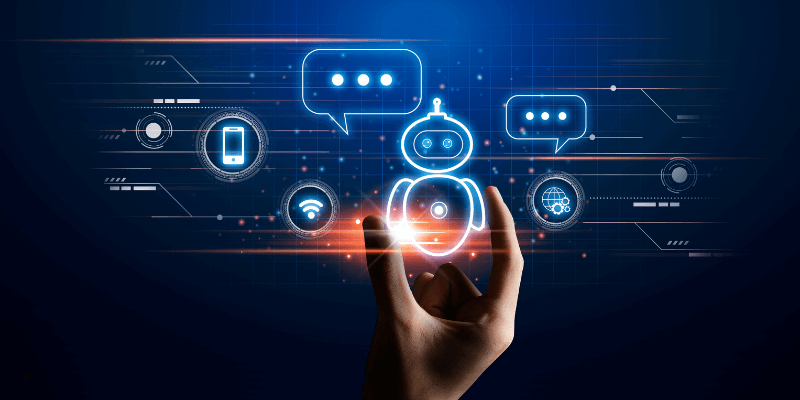
Chatbot development creates automated conversation systems where it facilitates users to interact with the brand and clear their doubts through simple chats. Normally, chatbot developers use coding and AI techniques which include machine learning, natural language understanding, natural language processing, etc.
These systems simulate human-like interactions as they serve customer support and sales tasks. Chatbot development is a modern tech solution which enables businesses to automate the process of communicating with end customers.
The process of chatbot development involves meticulous planning and design where developers outline conversation flows first, and then they map user queries and responses. Software architects choose relevant algorithms and frameworks which work well for the given development project. A clear structure and planning for developing intelligent chatbots ensure smooth operations, which is why usually the development team dedicates quality time for planning the project.
As chatbot development leverages machine learning techniques like NLP, NLU, etc., they understand and comprehend human language seamlessly. AI models power natural language processing with which chatbots interpret user messages accurately.
This enables personalized responses each time a user communicates using chatbots which results in improved accuracy as well as boosts user trust.
Development teams integrate chatbot platforms with websites and with mobile applications which makes the whole process of communication simple and easy. Additionally, APIs allow smooth data exchange between different systems which help eliminate data silos.
Moreover, implemented security protocols play a crucial role in protecting user data as the chatbot development company implements industry best practices.
Chatbot development focuses on user experience where simple dialogue flows between the brand and users have immense potential to increase engagement. What’s more fascinating is that you will be able to customize chatbots based on your unique brand tone and brand image which enables improved communication without deviating from the brand guidelines.
Furthermore, you can monitor the effectiveness of conversions using advanced data analytics and simple dashboards which simplifies the data and presents you with data-driven insights. Based on the feedback and results from data analytics, chatbot developers adjust chatbot systems which will improve the overall performance.
How Do Chatbots Work?
Chatbots usually operate using programmed rules as they follow predefined conversation flows. Developers typically design decision trees for responses where simple chatbots use if-then logic. They are suitable for answering basic questions instantly.
However, advanced chatbots rely on machine learning and its subsets like natural language processing and natural language understanding. They train on vast datasets of text. Which helps them understand and comprehend how humans use language for different purposes.
Machine learning algorithms learn patterns from conversation data using natural language processing which aids them in understanding not only the language but also the intricacies of communication, especially sentiments behind any given piece of content. This enables chatbots to be aware of context and provides relevant replies as per the user queries.
Chatbots use intent recognition to identify queries as they match user input with stored intents. It utilizes slots which help them gather essential details. Developers program fallback options for errors which helps in maintaining the fluidity of conversation.
APIs enable chatbots to access databases which facilitates them to retrieve user-specific data quickly. Moreover, cloud platforms host many chatbot services where you can implement real-time data which enhances conversation accuracy.
When it comes to developing chatbots, choosing a robust framework is a defining factor as chatbot frameworks simplify the overall development process.
Developers use tools like Dialogflow and Rasa using which they manage conversation states. Such advanced tools significantly reduce development time, as a result, you will experience an increased efficiency and higher degree of overall project success.
Chatbots now serve multiple business functions, and they are implemented across a variety of businesses spanning across different industries. One significant factor is that these chatbots rely on user data which fuels continuous chatbot improvement. The technology evolves with every interaction.
Key Technologies Behind Chatbots
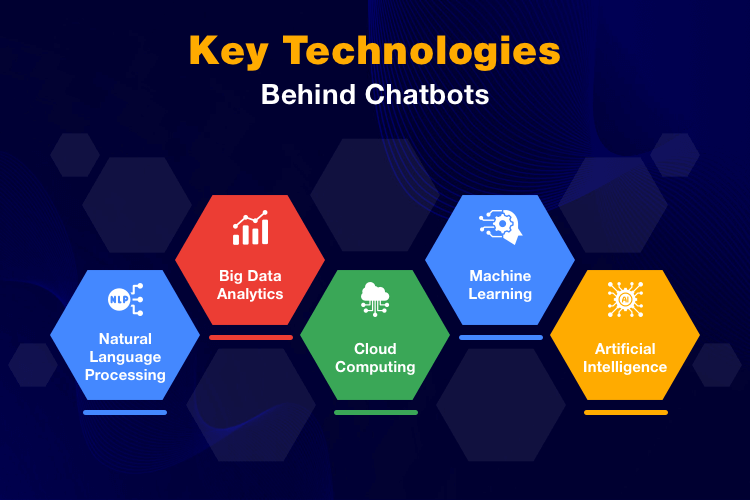
Natural Language Processing
Chatbots rely on natural language processing as NLP helps interpret user inputs correctly. It analyzes text for intent and context which enables chatbots to comprehend the input effectively. Advanced NLP uses deep learning methods which significantly improves accuracy with ongoing training.
Machine Learning
Machine learning underpins many chatbot features where ML algorithms learn from large conversation datasets. They adapt responses based on past interactions. Supervised learning refines chatbot accuracy where bots learn deeply about how to use human language like trying to understand the difference between real and sarcasm. These continuous improvements help drive higher engagement rates and customer satisfaction.
Artificial Intelligence
Artificial intelligence enhances decision-making processes where AI models process natural language effectively. They integrate semantic and syntactic analyses to help computers understand human languages better. In addition, deep learning networks improve conversation flow as they enable dynamic user interactions.
Cloud Computing
The performance of chatbots only improves when you utilize cloud computing technology which supports scalable chatbot deployment. It offers flexibility and robust performance and facilitates developers to host chatbots on cloud platforms. Cloud services ensure data availability and reliability which then boost customer trust.
Big Data Analytics
Data analytics, especially analyzing big data, refines the performance of chatbots as it helps track user interactions and trends. E main advantages of data-driven insights is that they streamline iterative improvements which results in efficient chatbot models.
Benefits of Chatbots for Businesses

Gartner predicts that by 2027, chatbots could be the primary customer support channel for at least a quarter of businesses worldwide for communicating with users and customers. The benefits of chatbots, however, go beyond transforming customer support.
Continuous Support
Chatbots offer continuous and round-the-clock customer support as they reduce user wait times significantly. In other words, users do not have to keep track of customer support agents’ working hours and wait to seek their support as intelligent chatbots automate the whole process. With this immediate assistance, user satisfaction is improved and as a result, brand value improves significantly. Another advantage is that automated services lower operational costs, hence, businesses can achieve higher efficiency overall.
Automate Repetitive Tasks
Chatbots handle high volumes of queries and manage repetitive tasks effortlessly. This frees staff for complex issues as you can reallocate your valuable human resources to other demanding areas. This improves efficiency as well, which leads to improved business productivity and increased revenue.
Customized Communication
Chatbots offer personalized customer interactions because they constantly analyze data to curate customized responses based on past user activity, chat history, and others. This amount of personalization boosts engagement and loyalty, as a result, customers feel valued through custom interactions. It has a positive impact on brands where their reputation gets improved with every interaction.
Highly Data-Driven
Intelligent chatbots rely primarily on datasets as they enable data-driven decision making. Analytics reveal trends and user behavior as data guides marketing and service strategies. With the chatbots’ ability to analyze and comprehend huge volumes of data, business strategies become more targeted and efficient where decision makers benefit from real-time insights.
Multi-Lingual Support
Chatbots increase accessibility to various services. A significant feature of chatbots is that they support multi-language communication which facilitates global customers to interact in their native language. The connectivity is further amplified by inclusive design which enhances market reach and makes diverse audiences feel more engaged.
Lead Generation
Chatbots have a significant impact on generating leads as they boost lead generation for businesses. They capture visitor information easily which helps in setting up follow-up messages to nurture potential clients. Additionally, automation supports continuous customer engagement with existing customers as well as potential customers based on their interests and recent activities.With chatbots, companies enjoy sustainable, unhindered growth.
What to Look for in a Chatbot Development Company
Choose a chatbot development company which has a proven chatbot expertise. Remember that industry experience of a company matters when it comes to digital transformation. Before finalizing on the service provider, make sure to review case studies and client testimonials as they tell how good a company is from the clients’ perspectives.
A company with technical expertise helps achieve better outcomes so look for robust technical expertise and innovation. A skilled team is essential for progress and so choose a team having its portfolio that includes a diverse range of projects. As innovation drives competitive advantage in the market, the development team should be well-versed with new technologies.
Consider communication and project management skills as clear dialogue creates a conducive work environment and smoothens the progress of chatbot development projects. It is critical that the team should meet deadlines and give timely updates which reflects their professionalism and reliability.
Evaluate the development company’s technical support and training because after-sales support is highly crucial for success. Check if the company offers continuous maintenance and upgrades which helps you with smooth integration and reassures that all your systems after integration are working properly.
Assess the company’s industry reputation and reviews as online ratings reveal service quality of companies. While doing so, make sure to check independent platforms which provide unbiased insights and customer reviews. Customer satisfaction is a top indicator when it comes to shortlisting a robust AI chatbot development company so choose the one that values client feedback.
Future Trends in Chatbot Development
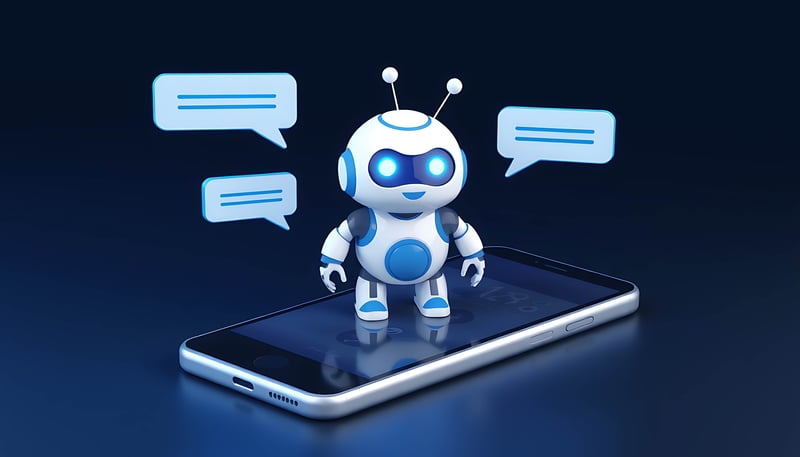
Chatbot technology evolves at a rapid pace where innovation drives new features and capabilities on a day-to-day basis. Developers explore advanced AI and NLP methods as emerging trends reshape experiences of customer interaction.
One notable development is that the AI chatbots are increasingly integrated with voice assistants which grows steadily. Voice commands enhance accessibility and ease so smart speakers and chatbots merge their functionalities. This trend broadens market opportunities as many studies predict that there will be a huge surge in voice-enabled chatbots.
Chatbots will become more context-aware, the main reason is that they use sentiment analysis for nuance. Understanding emotions refines user interactions and chatbots will be able to connect with users on more meaningful levels. Enhanced personalization improves customer experience as they will feel valued.
Integration with augmented reality is rising, as a result, chatbots may guide AR shopping experiences significantly. This blend enhances digital engagement which opens a new arena for businesses to explore immersive customer support options.
As there is a growing concern towards data security and privacy, future chatbot development and design processes may include stricter and more robust security measures.
User trust remains paramount in digital solutions which drives software development companies to implement practices like data encryption - both at rest and while in transit, multifactor authentication, etc. As a result, future chatbots will balance innovation with privacy and chatbot development companies will take great care in securing data.
Conclusion
Chatbot development significantly drives digital innovation where it transforms customer support and engagement. Businesses embrace chatbots for efficiency gains which facilitate them to engage with users and customers in a meaningful way.
Chatbot development is a strategic digital asset which blends AI with modern software practices. It is critical for businesses to choose the right chatbot development company which has quality, expertise, and support matter among others greatly. Smart investments lead to sustained business growth which sounds true when it comes to investing in chatbots.
FAQs
What is chatbot development & how it works?
Chatbot development is the process of developing AI-powered virtual assistants which you can use to interact with users as well as customers, either through text or voice. These chatbots use natural language processing, natural language understanding, and machine learning which help them understand and comprehend human language. You will be able to easily integrate these chatbots into your existing systems.
Why do I need to invest in chatbot development?
There are plenty of reasons why your investment towards chatbot development can be a game-changer for your business. Chatbots enable your business with scalable and automated customer support, which significantly enhances the experience of your customers and users.
As these chatbots operate on a 24/7 basis, they reduce the workload on human agents, and you can even reshuffle your critical human resources to other demanding areas of your business.
What are the different types of chatbots?
Chatbots come in different types which are based on their functionalities and technologies using which they are built upon.
- Rule-Based Chatbots: They follow predefined scripts and respond based on set rules.
- AI-Powered Chatbots: These chatbots use machine learning and NLP which help them understand complex queries and improve with time.
- Hybrid Chatbots: Combine both rule-based logic and AI capabilities to provide more intelligent responses.
How much does chatbot development cost?
The cost varies based on various factors like the type of chatbot that you want to build, level of AI sophistication, and many more. Basic chatbots can cost a few thousand dollars, however, enterprise-grade AI chatbots with advanced features and analytics can cost more. Get a custom quote from a chatbot development company which helps you get an accurate estimate.
How AI chatbots learn and improve over time?
AI chatbots typically use advanced machine learning algorithms using which they analyze how each user interacted with the brand. They utilize data mining and other analytics which help them identify patterns and learn from past conversations, then they refine their responses. Over time, these chatbots tend to learn from the users and customers, as a result, they become more accurate and capable of handling diverse queries.
How do I choose the right chatbot development company?
Identify a reliable and reputed company which has experience in AI and NLP and flexible team setup. Make sure the company has a strong portfolio and loads of positive client reviews which explain their work and reputation among their clientele.
As customization is the key in standing out from your competition, it would be best if they should offer customization options which also helps you with seamless integration. Finally, there is one important aspect you should not miss out on, which is to check if the company provides post-launch support. It ensures your chatbot evolves with your business needs.

